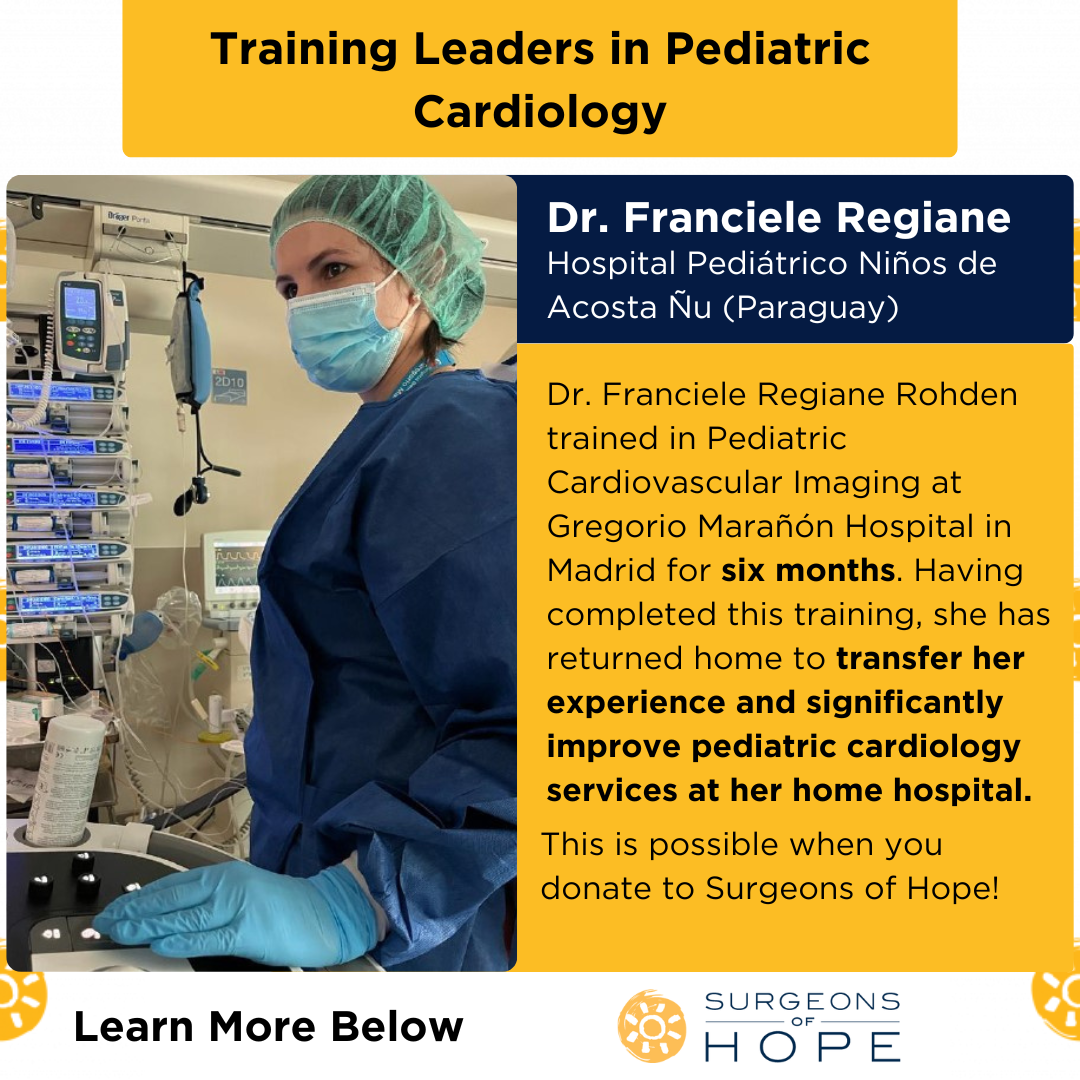Meet Franciele, a pediatric cardiologist training in echocardiography training in Spain from June 2023 to December 2023 with the support of SOH and Hospital Gregorio Maranon in Spain. In a world where every heartbeat matters, the role of a pediatric cardiologist trained in echocardiography is undeniably crucial. The early diagnosis of congenital heart disease (CHD) holds the key to transforming lives and shaping a brighter future for children around the globe. By emphasizing the importance of training these specialized medical professionals, we can make significant strides in addressing CHD and its impact, especially in the developing world.
Congenital heart disease is the most common birth defect, affecting millions of children worldwide. Without timely detection and intervention, it can lead to serious health complications and even loss of life. However, with advancements in medical technology, echocardiography has emerged as a powerful tool in diagnosing CHD at its earliest stages. By using ultrasound imaging to visualize the structure and function of the heart, pediatric cardiologists can identify anomalies and provide timely interventions, greatly improving outcomes for affected children.
In the developing world, the burden of CHD is particularly significant due to limited resources and access to specialized care. Many children in these regions face challenges ranging from delayed diagnosis to limited treatment options. However, by training pediatric cardiologists in echocardiography, we can bridge this gap and ensure that children receive the care they deserve.
Early detection of CHD is essential for several reasons. First, it enables healthcare providers to offer appropriate medical interventions, such as medication or surgical procedures, at the earliest opportunity. This early intervention significantly improves the chances of successful treatment and minimizes long-term complications. Second, early diagnosis allows families to prepare emotionally and financially for the journey ahead, ensuring that they have the support they need during this critical time.
In the developing world, where healthcare infrastructure is often under-resourced, training pediatric cardiologists in echocardiography is a game-changer. It equips them with the skills and knowledge to accurately identify CHD in infants and children, even in resource-limited settings. These healthcare heroes become beacons of hope, bringing specialized care to underserved communities and breaking the cycle of limited access to quality medical services.
To address the status of CHD in the developing world, it is vital to advocate for increased investment in healthcare infrastructure, training programs, and the provision of necessary medical equipment. By partnering with local communities, governments, and international organizations, we can work towards building sustainable solutions that empower pediatric cardiologists and healthcare professionals to diagnose and treat CHD effectively.
The journey of a pediatric cardiologist trained in echocardiography is not just about interpreting images or diagnosing medical conditions. It is about transforming lives, instilling hope, and shaping a healthier future for our children. Every child deserves the chance to thrive, and by empowering these medical professionals, we can create a world where every heartbeat is heard, cherished, and given the opportunity to flourish.




